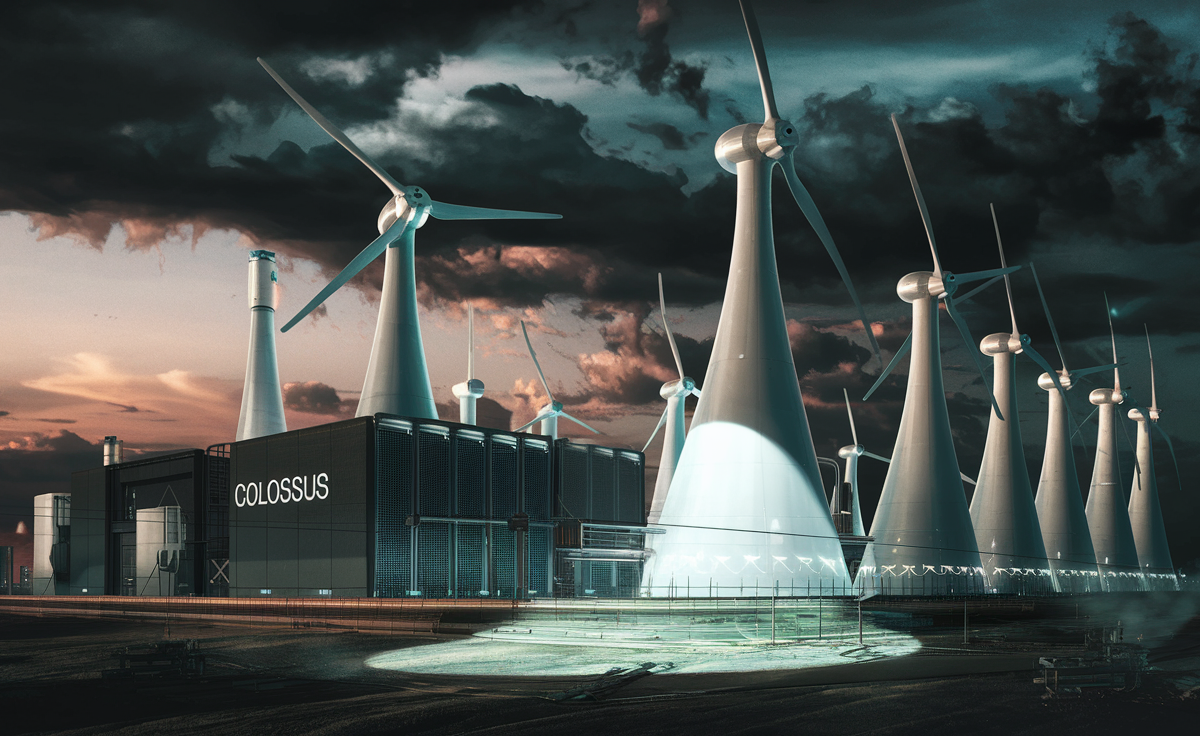After a wave of criticism over purported contamination risks, tech giant xAI has finally secured the necessary air permit for the methane gas turbines driving its colossal data center, Colossus, in Memphis, Tennessee.
The technological revelation comes as a breath of fresh air, as xAI successfully navigates the storm of backlash concerning alleged environmental hazards. Notably, it’s within a context where the implications of technology on our environment have come under intense scrutiny. This development underscores the necessity for tech companies to align their innovations with environmental regulations, underlining the fact that innovation and environmental responsibility are not mutually exclusive.
The methane gas turbines at the heart of this issue power Colossus, xAI’s supercomputer data center. The permit granted by the Shelby County Health Department allows xAI to operate 15 gas turbines while adhering to a series of restrictions to minimize emissions. This approval comes with an expiration date: January 2, 2027. A critical stipulation of the permit mandates xAI to install and operate the best available control technology (BACT) by September 1, an effort to ensure emissions do not exceed defined limits.
Breaking Analysis: Key Information
The main revelation here is xAI’s ability to gain an air permit amidst a surge of environmental concerns. The permit covers 15 methane gas turbines powering the company’s data center. It’s an important leap for xAI, as it sets a precedent for other tech giants grappling with similar issues.
In the context of this situation, key players include the Shelby County Health Department and xAI. The former is responsible for enforcing environmental standards, while the latter must now comply with these regulations.
This permit is significant when compared to the increasing scrutiny tech companies face over environmental concerns. It’s a compelling example of a company successfully navigating the regulatory landscape to continue its innovative operations.
What This Means for You
This development directly impacts the lives of citizens, particularly in Memphis, Tennessee. As xAI continues its operations, the assurance of minimized emissions brings a sigh of relief for the local community. It also sets a precedent for other tech companies, hinting at a future where innovation can coexist with environmental responsibility.
The winners here are not just xAI and its stakeholders, but also the residents of Memphis who stand to benefit from the reduced environmental impact. However, the true test will be xAI’s adherence to the conditions outlined in the permit.
What Happens Next
The next steps are clear. By September 1, xAI must install and operate the BACT to ensure emissions remain within acceptable limits. It’s a critical move that will determine the company’s compliance with environmental regulations.
For those closely following this development, the main action is to observe xAI’s adherence to the permit’s conditions. It’s a case that could set a precedent for how tech companies manage environmental concerns while pushing the boundaries of innovation.
As we move forward, this case serves as a stark reminder of the delicate balance between innovation and environmental responsibility. It signals a pivotal moment where tech companies must navigate this balance, a task that will undoubtedly shape the future of technological innovation.
